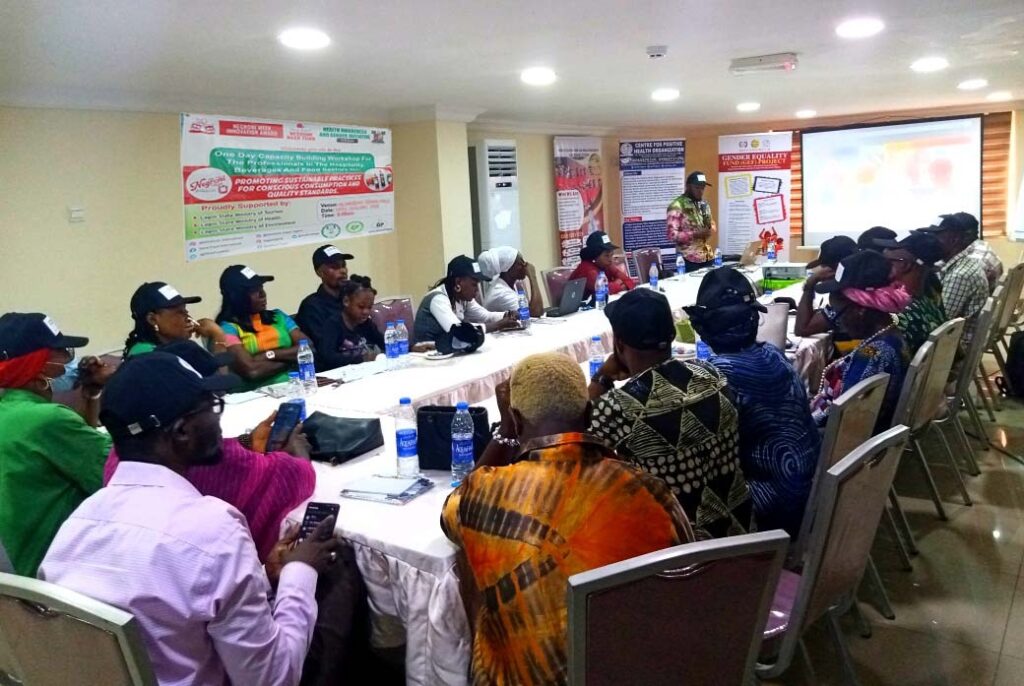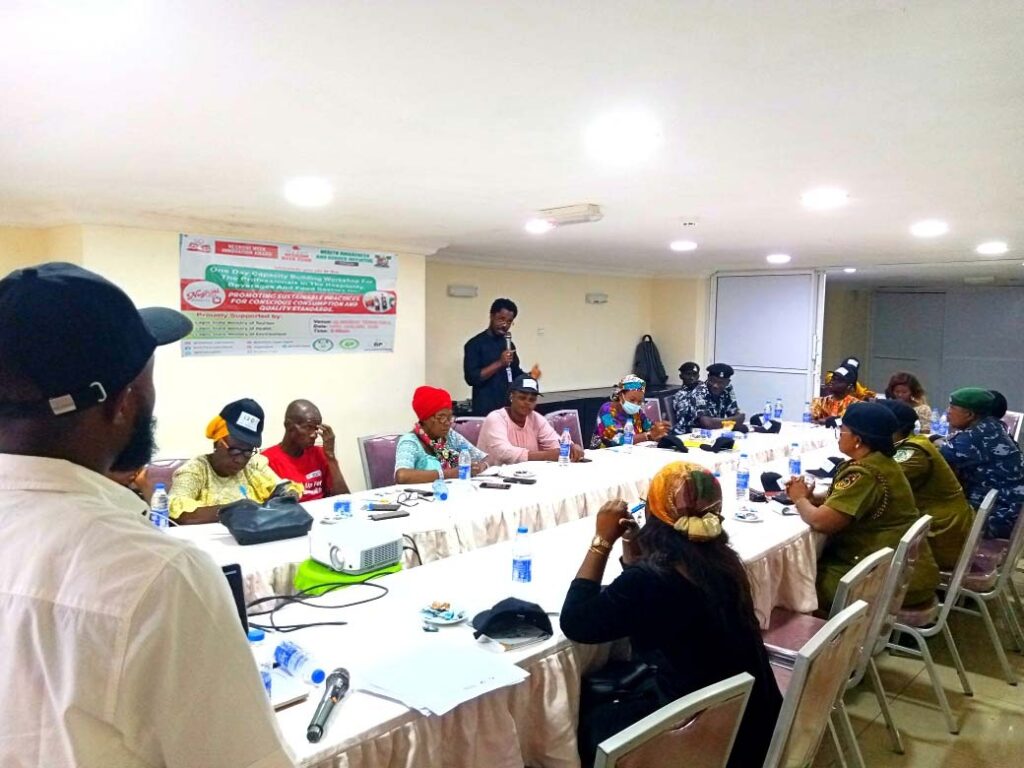By Damilola Abiola

In a bid to combat the growing threat of food waste and environmental pollution in Lagos, over 40 residents of Alimosho Local Government Area gathered on January 30, 2025, for a one-day workshop aimed at transforming how consumers interact with food and waste. Held at Ayotoz Hotel and Suites, the training emphasized that conscious consumption is a powerful tool in creating a cleaner, safer environment for all.
Organized under the theme “The Role of Consumers in Reducing Food Waste and Environmental Pollution,” the workshop attracted traders, transport workers, artisans, and waste managers, 67.5% of whom were women, highlighting their growing leadership in environmental advocacy at the grassroots level.
The Executive Director of HAGAI, Adebayo Azeez Aladeyelu, set the tone of the session by reminding participants that “every leftover food thrown away and every plastic bag littered contributes to the problem we are all trying to solve.” He urged market leaders, artisans, and community members to be intentional about their daily choices.
From Farm to Waste Bin

Mr. Oloidi Oladotun, a renowned environmental educator who was the lead facilitator delivered a deeply engaging session that unpacked the lifecycle of food, from farm to table to trash. He highlighted how everyday wasteful habits, from overbuying perishable goods to discarding leftovers, exert pressure on land, water, and human labor.
“When we waste food, we waste everything that went into producing it, from the sweat of farmers to the cost of transportation and refrigeration,” Oladotun said, prompting many participants to reflect on their habits.
With relatable examples, he illustrated how tomatoes bought early in the day often spoil by nightfall due to lack of preservation, and how party leftovers are routinely tossed rather than stored or shared.
Small Changes, Big Impact
Oladotun introduced the concept of “conscious consumption,” urging consumers to rethink purchases and avoid food spoilage. “Before you buy it, ask: Do I really need it? Will I use all of it? Do I know how to preserve it?” he advised. He further encouraged participants to keep a “waste journal” for a week, plan meals better, and participate in leftover reuse practices like “Leftover Sunday.”
He also addressed food waste at the source, homes, eateries, and markets, calling for more training for kitchen staff on portion control and better preservation methods in market stalls.
“That bunch of bananas you bought just because it was cheaper may end up in the trash by day two,” he said, drawing nods and murmurs of agreement from the audience.
Connecting Waste to Pollution
Beyond household behavior, the session drew strong links between food waste and larger environmental issues. Oladotun used illustrations to show how mixed waste contributes to clogged drainage, overflowing dumpsites, and methane gas emissions that fuel climate change.
“Rotting food in plastic bags releases harmful gases and attracts rodents. But sorted waste can become compost or animal feed,” he explained.
Participants were also urged to join community composting initiatives and advocate for more organized market waste collection systems.
Voices from the Community
During the interactive Q&A, participants raised practical concerns:
Shinabola Abiola Kazeem from the transport union asked how mobile workers relying on roadside vendors can contribute. Hon. Aladeyelu responded: “You are critical actors. Partner with food vendors to reduce single-use plastics and lead by example with reusable containers.”
Artisan Bowofade Mosuru, who runs a small canteen, asked how to reduce food waste. Oladotun advised: “Track leftovers and adjust portions. Offer small meal options or partner with food banks.”
Market woman Amusan Kadijat expressed frustration over inadequate waste disposal services. Hon. Aladeyelu acknowledged the challenge and pledged to work with LAWMA, urging market associations to establish communal waste bins.
Grace Rofiat from LAWMA encouraged participants to support waste separation at home. Oladotun added: “Separate organic from plastic waste, freeze leftovers, and avoid overbuying perishables.”
Measurable Impact
According to a pre- and post-test assessment, the training significantly improved participants’ knowledge of food waste and pollution. Average test scores jumped from 43.80% to 68.35%, a statistically significant increase confirmed by a t-test (t = -20.942, p = .000).
This leap in understanding underscores the training’s success in equipping citizens to become proactive environmental stewards.
Women Leading the Change
Notably, women made up over two-thirds of the participants, suggesting that women are at the forefront of environmental behavior change in Alimosho. Their strong turnout also points to opportunities for further gender-balanced outreach in future sessions.
A Call to Action
The workshop closed with a rousing message from Oladotun:
“You may not own a factory or be a policymaker, but you eat every day. That means you contribute to the system every day. And every small action you take, sorting your waste, sharing food, reducing what you buy, creates a ripple effect.”
